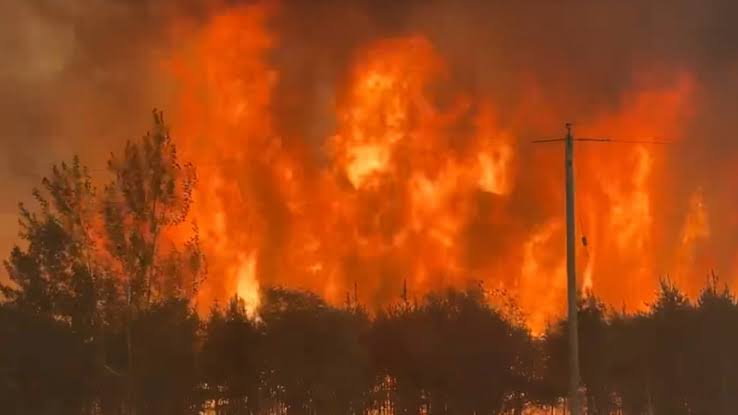Toronto, June 2, 2025: A severe wildfire crisis in Canada has forced the evacuation of more than 25,000 residents across Manitoba, Saskatchewan, and Alberta. The fires have already scorched over 1.6 million acres, making this one of the most intense fire events in recent Canadian history. Two deaths have been confirmed, and air quality warnings have been issued across North America.
The situation is especially dire in Manitoba, where 17,000 residents have fled their homes. The town of Flin Flon has been hit hard, and Cranberry Portage experienced widespread power outages before evacuations began. Saskatchewan has seen nearly 8,000 evacuations, while Alberta has evacuated about 1,300 people.
Smoke from the wildfires has blanketed much of the Upper Midwest in the United States, including cities like Milwaukee and Chicago. Air quality alerts are in effect, with officials classifying the conditions as unhealthy for sensitive groups. Authorities have advised residents to limit outdoor activities, close windows, use air purifiers, and wear N95 masks outdoors.
Emergency services from Canada and the United States are collaborating on firefighting efforts. The U.S. Forest Service has deployed air tankers and plans to send 150 firefighters. In addition, evacuation shelters have been opened in Winnipeg and other affected areas, but shortages of accommodation are posing challenges. Indigenous leaders are urging the government to prioritize displaced families for housing assistance.
Weather forecasts indicate little to no rainfall in the coming days, with hot and dry conditions expected to persist. Officials warn that the fires may continue to grow and further impact air quality across eastern Canada and the northeastern U.S.
Residents are encouraged to follow updates from local emergency services and health advisories for real-time safety information.
Canada Wildfires Force Mass Evacuations; Air Quality Declines in U.S. Midwest

